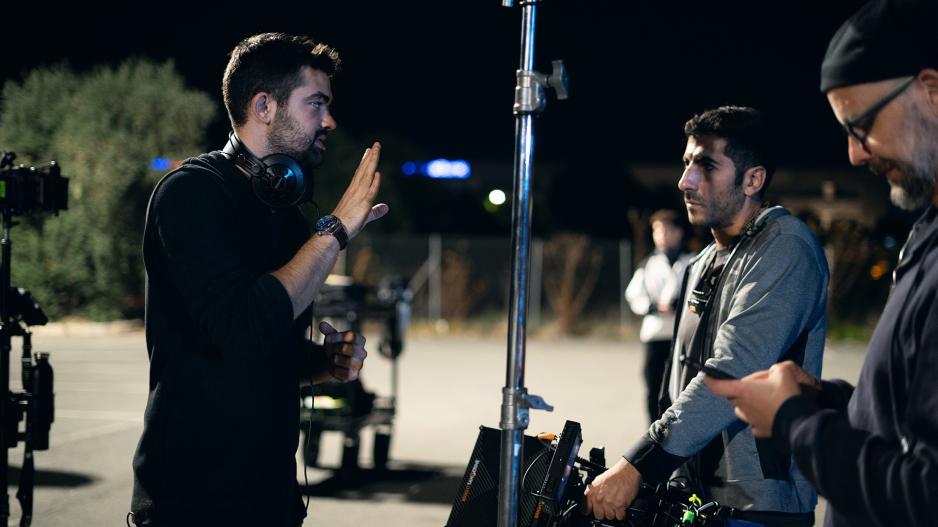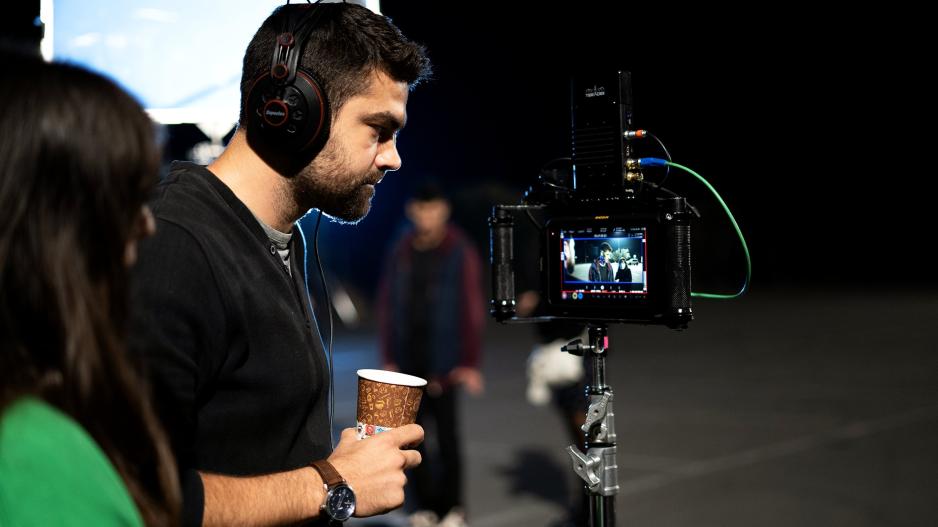The Cypriot Film Landscape: An Interview with Alexander Machlouzarides-Shalit
FastForward had the pleasure of speaking with Alexander Machlouzarides-Shalit, an award-winning director and filmmaker who has been a driving force in the Cypriot film industry. Born in New York in 1996 and moving to Cyprus in 2006, Alex's passion for filmmaking was evident early on through his involvement in school productions. He pursued his passion academically, obtaining a BA in Film Studies from Falmouth University and an MA in Directing from MetFilmSchool London. With multiple international awards under his belt for films such as "The Morning After," "Leonidas and the Fish," and "The Attic," Alex has established a remarkable reputation. In this interview, Alex shares his inspirations, the challenges of filmmaking in Cyprus, his strategies for funding and distribution, and his vision for the future of Cypriot cinema.
Growing up, I was captivated by the power of storytelling particularly in the magic of the cinema. I was fascinated and inspired by the ability of filmmakers to create worlds, evoke emotions, stir thoughts and powerfully impact people. I came to see film directing as a challenge to create a viable entertainment consumer product that I could employ to pose meaningful, difficult questions to society. In other words, as a citizen to use it as a political tool to effect change for the good.
One of the biggest challenges confronting filmmakers in Cyprus is the limited access to resources and funding. The film industry here is still developing, and finding the necessary support to bring projects to life can be difficult. Additionally, the smaller market size means there are fewer opportunities for distribution and exposure. Despite these obstacles, the local filmmaking community is incredibly motivated, and I’m excited to be part of its growth. Bold and original films can be born of times of great unrest and limited resources can breed creative solutions.
Securing funding for a film often requires a multifaceted approach. I start by tapping into local and international grants that support independent filmmakers, particularly those aimed at emerging talents. I also network within the film community, attending festivals and industry events to build relationships with potential investors and collaborators. In Cyprus, the Ministry of Culture aims to provide financial assistance to the film industry and young professionals and its film funding scheme has helped to keep production companies alive and filmmakers active. In collaboration with A.B. Seahorse films, I submitted last year my short-film script of “20 Euros” for a grant award and thankfully it was selected amongst a few other shorts thus allowing me to actually produce it.

When it comes to distribution, online platforms have revolutionised the way we can reach audiences, so I definitely leverage them. Platforms like YouTube, Vimeo, and streaming services are excellent for gaining visibility and reaching a global audience. For my low-budget films and student work, these platforms allowed for immediate and widespread access. However, I also value the traditional theatre experience. There’s something uniquely powerful about watching a film on the big screen, and I aim to have my films showcased at film festivals and theatre releases soon.
I view marketing as an extension of the storytelling process, where the aim is to convey to the public the essence and worth of the film even before anyone has watched it. For visual elements like posters and stills, I prioritise creating memorable images. I work closely with talented graphic designers and art directors like Mikaella Socratous, to ensure that every asset is not only visually appealing in itself but reflects the film story and evokes interest.
Online media advertising plays a significant role in my marketing strategy. Social media platforms like Instagram, are invaluable for reaching a wide audience. I create teaser trailers, and behind-the-scenes content to build interest. Engaging with film critics can generate buzz and provide credibility through reviews and interviews. In addition, dedicated film websites such as FilmFreeway, serve as hubs for all information related to the film, exclusive content, and screening details. These tools help keep the audience engaged throughout the production phases.
Overall, my approach to creating effective advertising campaigns is to be as engaging and true to the film as possible, ensuring that the marketing material promotes the film in ways that capture its essence and best present its finer attributes. This should create bonds with prospective audiences, fostering anticipation and interest.
The message of a film is crucial to me. Storytelling must aim not merely to entertain, but, explicitly or subtly as the case requires, to excavate and explore issues that resonate deep in the individual and collective human psyche.
In “20 euros”, the central theme is masculinity and violence. I wanted to explore how societal perceptions of masculinity can foster destructive behaviours and how this impacts individuals and their relationships. It is an issue that feels particularly relevant today and I felt it was important to shine a light on it through a compelling and relatable story. It is presented in a realistic manner with natural cinematography by Stephan Metzner and brilliant acting by Anthi Kasinou and Constantinos Tsitsios. The film is grounded and believable, allowing the audience to relate to the characters and ask themselves what they themselves would have done in such a situation. The central theme is lightened by moments of absurdism and comedic plot-twists, hopefully creating a film that is both entertaining and thought provoking.
My upcoming short film “Iphigeneia” aims to capture the emotional turbulence of anticipating frightening news, the strength needed to navigate generational trauma and one’s own journey to deal with their past and presumed inevitable hereditary destiny. Partly inspired by Agnes Varda’s “Cleo from 5 to 7” and the Netflix series “Maid”, “Iphigeneia”, stars Maria Constantinou and newcomer Nefeli Iordanous. The film blends hyper-realism with surrealist elements to present a pained, deeply private story in a restrained format, without overt sentimentality and melodrama, that it may resonate with anyone who has experienced similar anxieties.
I like to use film as my medium for exploring and questioning the human condition, seemingly easy everyday stories of simple people. Ultimately the value of a film’s message lies in its power to positively impact the viewer in a profound and lasting manner. That I would say is the essence of good film making.
To young filmmakers starting out, my advice would be to be persistent, passionate, and sincere. Embrace your unique story and background, as these make your work stand out. Start small, with short films, grounded in reality, stay resilient in the face of rejection and setbacks and learn continuously from every experience. Networking is crucial, so attend film festivals, workshops, and collaborate with other creatives. Utilise online platforms to showcase your work and build a global audience.
My main message is just to go out and make films, constantly, don’t wait for budgets and actors and specific props, go out and make films with your friends, in houses, in parks with whatever prop and whoever you have around you, and you will slowly learn what you enjoy doing and what can work and be successful. This practice is invaluable. I made a few dozen shorts with my friends before I ever tried to submit one to a festival, and the lessons I learned through those student films have stayed with me and have shaped me to this day.
The film industry in Cyprus is evolving and has great potential. Increased funding and support, a growing number of film festivals and international collaborations are on the rise. As Cypriot filmmakers continue to draw on the rich history and diverse culture of Cyprus, they will certainly produce unique stories that stand out internationally. This is an exciting time to be part of Cyprus's film industry, and by working hard and staying true to their vision, young filmmakers can make a significant impact.
I hope that following the release of “20 euros” and the completion of “Iphigeneia”, I can start working on my very first feature film that has been in the scripting stage for a few years now. Hopefully supported once again by the Ministry of Cyprus’s film grant award and other European grants, I hope to continue exploring interpersonal relationship themes as I have been doing in my short films and to create films of the genres I am drawn to, but on a bigger scale; I wish to be able to create more multidimensional, nuanced and complex characters and story plots that allow for growth and development, qualities that can really only be realized within the runtime of a feature film.






